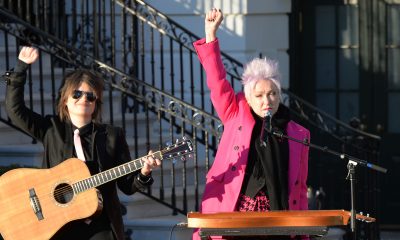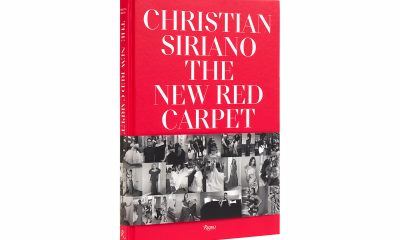Arts & Entertainment
‘Green Book,’ Rami Malek and more of the 2019 Oscar winners
Lady Gaga, Olivia Colman round out top honors
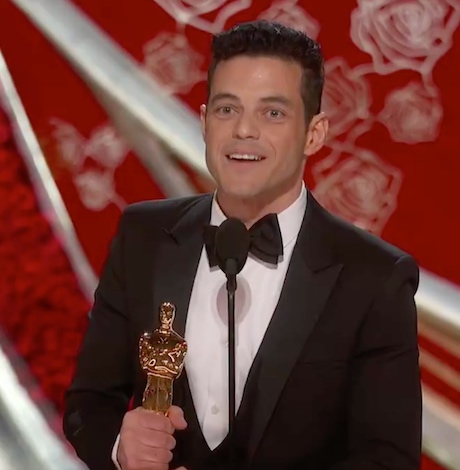
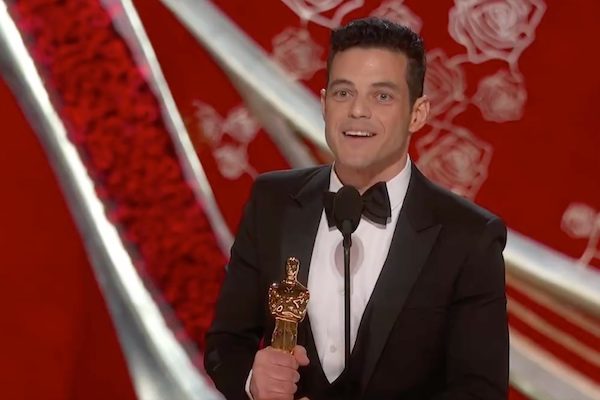
The 91st annual Academy Awards became a historic night on Sunday at the Dolby Theatre in Los Angeles as the golden statues were handed out to first-time winners for both Hollywood newcomers and overdue veterans.
Queen, fronted by singer Adam Lambert, kicked off the show with a melody of Queen songs including “We are the Champions.” The hostless show was sped forward simply by presenters and kicked off with the comedian trio of Tina Fey, Maya Rudolph
“We are not your hosts, but we’re going to stand here a little too long so that the people who get USA Today tomorrow will think we hosted,” Fey joked to the audience.
Soon after, the first major award of the night was given to Regina King for her role in the James Baldwin film adaptation, “If Beale Street Could Talk.” This was King’s first Academy Award win.
King thanked her mother and Barry Jenkins, who also directed Oscar winner “Moonlight.”
“To be standing here representing one of the greatest artists of all time – James Baldwin. James Baldwin bursts this baby and Barry nurtured her, surrounding her with so much love and support. So it’s appropriate to be standing here because I am an example of what it looks like when support and love
Lady Gaga won Best Original Song for “Shallow,” which she passionately performed with her “A Star is Born” co-star Bradley Cooper earlier in the show. The song beat out the popular song “All the Stars” by Kendrick Lamar and SZA from “Black Panther” and “The Place Where Lost Things Go” by Emily Blunt from “Mary Poppins Returns,” which was performed by Bette Midler at the ceremony.
A star is born… ? #Oscars pic.twitter.com/lh0HZ53XrD
— Channel 9 (@Channel9) February 25, 2019
“It’s not about winning,” Lady Gaga says in tearful acceptance speech. “What it’s about is not giving up. If you have a dream, fight for it.” https://t.co/qqMWC8hs2g #Oscars pic.twitter.com/aQuaMgE6ZU
— ABC News (@ABC) February 25, 2019
Backstage, Lady Gaga was asked what she would say to her fans headed to the Gay and Lesbian Mardi Gras in Sydney, Australia.
“I’ll tell you something, I hope that everyone there in Sydney feels so much joy and celebrates all sexual identities. And I also have a dream in our future as we evolve as humanity that these award shows not be male and female but include everyone,” Gaga replied.
Rami Malek won Best Actor for his portrayal of bisexual Queen frontman Freddie Mercury. Malek is the first Arab-American to win Best Actor.
“I think about what it would have been like to tell little bubba Rami that one day this might happen to him, and I think his curly-haired little mind would have been blown,” Malek told the crowd in his acceptance speech. “That kid was struggling with his identity, trying to figure himself out, and to anyone struggling and trying to discover their voice — listen, we made a film about a gay man, an immigrant, who lived his life unapologetically himself. And the fact I’m celebrating him and this story with you tonight is proof that we’re longing for stories like this.”
In a heartfelt speech, Oscar winner Rami Malek praises his mom, says he knows his dad is looking down on him, thanks Queen, and says the world “is longing for stories” about people being “unapologetically” themselves.
— ABC News (@ABC) February 25, 2019
Watch the whole thing: https://t.co/zSrvQG8ZE6 #Oscars pic.twitter.com/uXxpfORcPx
“Bohemian Rhapsody” also won awards for Best Sound Editing, Sound Mixing and Film Editing.
Olivia Colman won Best Actress for her role as Queen Anne in “The Favourite.” In her light-hearted speech, Colman said: “This is hilarious. I’ve got an Oscar” and ended her acceptance by blowing a kiss to Lady Gaga.
Olivia Colman gives heartfelt acceptance speech after winning award for Best Actress at the #Oscars.
— ABC News (@ABC) February 25, 2019
“Any little girl who’s practicing her speech on the tele—you never know!” https://t.co/cajeASPKfS pic.twitter.com/oDOFzm7LOg
“Roma” also won big for the night with a win for Best Foreign Picture, Cinematography and a Best Director win for Alfonso Cuarón.
Overall, the night was filled with diversity as a record-number of women won awards. These women included Ruth E. Carter (Best Costume for “Black Panther”) and Hannah Beachler (Best Production Design for “Black Panther”) who became the second and third black women to win non-acting Oscars in the span of a few minutes. Beachler was also the first black woman to ever be nominated for Production Design.
Film veteran Spike Lee won his first Oscar in the history of his career for Best Adapted Screenplay for “
Perhaps the most controversial win of the night went to “Green Book,” which won for Best Picture. The film has maintained plenty of controversy since its release. The film is based on the true story of black pianist Dr. Donald Shirley (Mahershala Ali) who hires Tony Vallelonga (Viggo Mortensen) to be his driver and bodyguard. The film has been accused of using the “white savior” trope. Shirley’s family have also denounced the film as an inaccurate portrayal of the pair’s friendship.
Mortensen also came under fire during promotion for the film when he used the N-word to describe how race relations have changed over the years.
“For instance, no one says ‘N-word’ anymore,” Mortensen said at the time. He later apologized.
Despite the controversy, the film also nabbed a Best Supporting Actor win for Ali, his second following “Moonlight,” and a win for Best Original Screenplay.
Check out the list of winners below.
Best Picture
“Black Panther”
“BlacKkKlansman”
“Bohemian Rhapsody”
“The Favourite”
“Green Book”
“Roma”
“A Star Is Born”
“Vice”
Actress in a Supporting Role
Amy Adams-“Vice”
Marina de Tavira-“Roma”
Regina King-“If Beale Street Could Talk”
Emma Stone- “The Favourite”
Rachel Weisz- “The Favourite”
Actor in a Supporting Role
Mahershala Ali- “Green Book”
Adam Driver- “BlackKKlansman”
Sam Elliott- “A Star Is Born”
Richard E. Grant- “Can You Ever Forgive Me”
Sam Rockwell- “Vice”
Foreign Language Film
“Capernaum”
“Cold War”
“Never Look Away”
“Roma”
“Shoplifters”
Documentary (Short)
“Black Sheep”
“End Game”
“Lifeboat”
“A Night at the Garden”
“Period. End of Sentence.”
Documentary Feature
“Free Solo”
“Hale County This Morning, This Evening”
“Minding the Gap”
“Of Fathers and Sons”
“RBG”
Original Song
“All The Stars” – “Black Panther”
“I’ll Fight” – “RBG”
“Shallow” – “A Star Is Born”
“The Place Where Lost Things Go” – “Mary Poppins Returns”
“When A Cowboy Trades His Spurs For Wings” – “The Ballad of Buster Scruggs”
Animated Feature Film
“Incredibles 2”
“Isle of Dogs”
“Mirai”
“Ralph Breaks the Internet”
“Spider-Man: Into the Spider-Verse”
Adapted Screenplay
“The Ballad of Buster Scruggs”
“BlacKkKlansman”
“Can You Ever Forgive Me?”
“If Beale Street Could Talk”
“A Star Is Born”
Original Screenplay
“First Reformed”
“Green Book”
“Roma”
“The Favourite”
“Vice”
Actor in a Leading Role
Christian Bale- “Vice”
Bradley Cooper- “A Star Is Born”
Willem Dafoe- “At Eternity’s Gate”
Rami Malek-“Bohemian Rhapsody”
Viggo Mortensen- “Green Book”
Actress in a Leading Role
Yalitza Aparicio- “Roma”
Glenn Close- “The Wife”
Lady Gaga- “A Star Is Born”
Olivia Colman- “The Favourite”
Melissa McCarthy- “Can You Ever Forgive Me?”
Director
Spike Lee- “BlacKkKlansman”
Pawel Pawlikowski- “Cold War”
Yorgos Lanthimos- “The Favourite”
Alfonso Cuarón- “Roma”
Adam McKay- “Vice”
Production Design
“Black Panther”
“The Favourite”
“First Man”
“Mary Poppins Returns”
“Roma”
Cinematography
“Cold War”
“The Favourite”
“Never Look Away”
“Roma”
“A Star Is Born”
Costume Design
“The Ballad of Buster Scruggs”
“Black Panther”
“The Favourite”
“Mary Poppins Returns”
“Mary Queen of Scots”
Sound Editing
“A Quiet Place”
“Black Panther”
“Bohemian Rhapsody”
“First Man”
“Roma”
Sound Mixing
“Black Panther”
“Bohemian Rhapsody”
“First Man”
“Roma”
“A Star Is Born”
Animated Short Film
“Animal Behaviour”
“Bao”
“Late Afternoon”
“One Small Step”
“Weekends”
Live Action Short Film
“Detainment”
“Fauve”
“Marguerite”
“Mother”
“Skin”
Original Score
“Black Panther”
“BlacKkKlansman”
“If Beale Street Could Talk”
“Isle of Dogs”
“Mary Poppins Returns”
Visual Effects
“Avengers: Infinity War”
“Christopher Robin”
“First Man”
“Ready Player One”
“Solo: A Star Wars Story”
Film Editing
“BlacKkKlansman”
“Bohemian Rhapsody”
“Green Book”
“The Favourite”
“Vice”
Makeup and Hairstyling
“Border”
“Mary Queen of Scots”
“Vice”
Movies
Infectious ‘Egghead & Twinkie’ celebrates love and allyship
Lesbian teen takes journey to self-acceptance with straight BFF
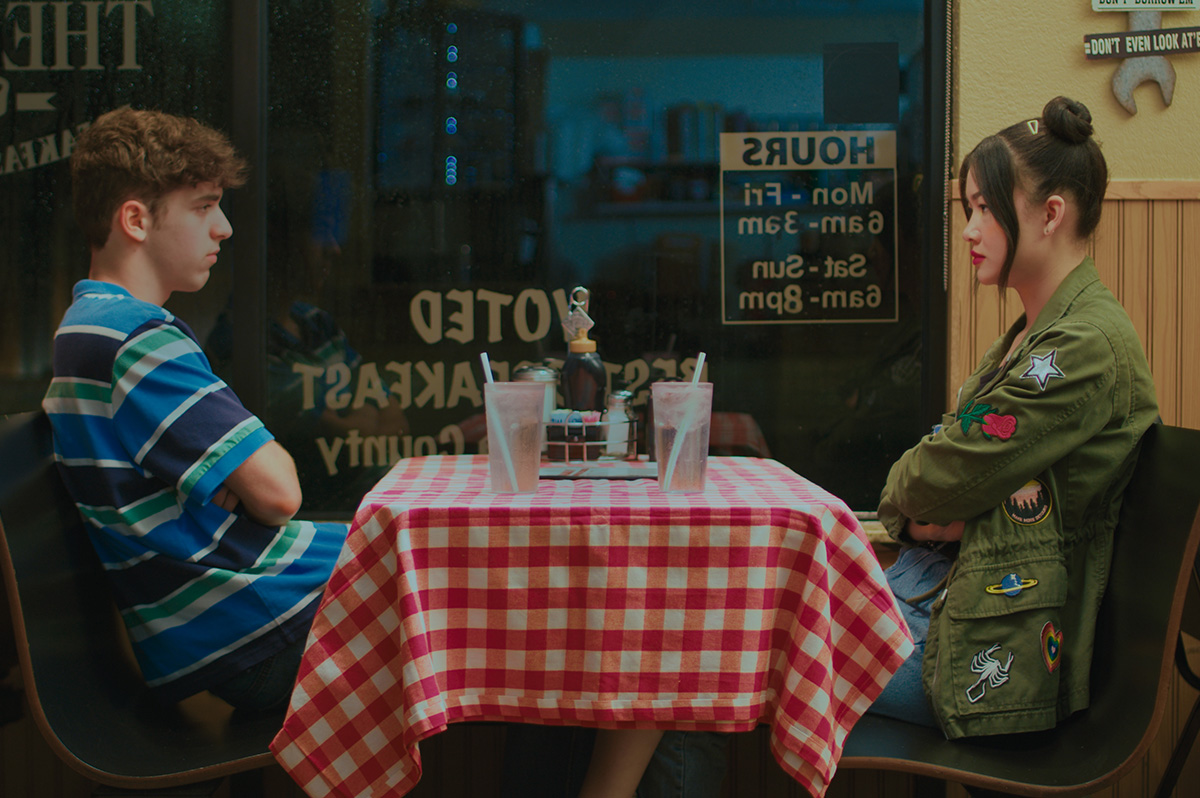
If you’ve ever wondered why so many queer movies are are coming-of-age stories, it might be that you were lucky enough to go through the transition into young adulthood without having to worry about your sexual alignment or gender identity being acceptable to your family or your friends or the world at large – and if that’s the case, we are truly happy for you. That’s the way it should be for everyone.
Unfortunately, it’s not. For many millions of queer kids, growing up is still an experience fraught with fear, shame, and very real peril, and this was true even before the current era of government-sanctioned homophobia and bigotry. It’s never been easy to become who you are when you’re surrounded by a family or community that refuses to accept who you are. It’s as near a “universal” queer experience as one can imagine in a demographic as diverse as ours, and it reinvents itself with each new generation – so there will always be an appeal for queer audiences in stories which express that often painful odyssey in a way that makes us feel “seen.”
That’s why “Egghead & Twinkie” – a 2023 film fest fave only now getting a VOD release (on April 29) – is such a welcome and refreshing addition to the genre. A passion project from Asian American filmmaker Sarah Kambe Holland, who expanded it into a feature from a “proof-of-concept” short she made in 2019, it brings a Gen Z perspective, which makes it as unique and contemporary as it is recognizable and relatable.
Set in suburban Florida, Holland’s movie centers on the relationship of its two title characters. “Egghead” (Louis Tomeo) and “Twinkie” (Sabrina Jie-A-Fa), childhood friends with a deep bond from growing up across the street from each other, face a crossroads as the cute-but-nerdy Egghead prepares to depart for college, leaving behind Twinkie – an Asian-American adoptee raised by socially conservative white parents who is one year his junior – just as she is beginning to come to terms with her long-hidden lesbian identity. Planning to connect with her social media crush (Ayden Lee) at a nightclub event in Texas, she enlists Egghead to accompany her as she “runs away” from her restrictive parents into the arms of a girlfriend she has never actually met in person, at a bar she’s too young to get into. Needless to say, it’s not a great plan – especially since the straight Egghead has long-hidden feelings of his own for his BFF – but it leads to a shared adventure in which they each must redefine both their feelings and their commitment toward each other, while staying one step ahead of her frantic family and dealing with the mishaps inherent in taking an impromptu cross-country road trip in a car you stole from your father.
There’s a youthful verve to the whole affair, punctuated with the inevitable irony that comes from watching it unfold through the eyes of age and experience – something that younger viewers may appreciate less than its spirit of boldness and (admittedly comedic) rebellion – and embellished with a visual aesthetic that reflects both Holland’s background as a YouTube “content creator” and the lead characters’ shared love of comics and animé; but what gives the film that extra “oomph” and makes it feel more significant than many of the other youth-oriented queer entertainments of recent years is not so much about the style of its storytelling as it is the nature of the relationship at its core.
Though “Egghead & Twinkie” is unequivocally a queer coming-of-age movie – which certainly deals with its teen lesbian protagonist’s journey to self-acceptance and includes an unexpected but irresistible connection with a fellow queer Asian American teen (Asahi Hirano) she meets along the way, unapologetically endorsing the validity of its heroine’s romantic pursuit, however misguided it may seem – it is ultimately a film less about queer identity than it is about friendship. While it allows ample opportunity for Twinkie to refine her values and learn from the mistakes of her rebellious quest for self-acceptance, it never loses sight of the fact that her long-term relationship with Egghead is one of mutual support and unconditional love. More than a romance, this YA-ish story of love beyond sexuality is a tale of true allyship, in which the unconditional understanding between friends – between fellow living beings – becomes more important than the romantic fantasies of a more naive conception of queer existence. It’s a love story, to be sure, but the love it lifts up is the kind ultimately has little to do with questions of sexual identity; instead, it’s the kind that transcends biology and sexuality to express something arguably more essential – the genuine emotional bond between two kindred souls that has nothing to do with either, but rather draws its power from shared experience and mutual acceptance. It’s that rarest of movies that celebrates the value and importance of platonic love that stretches across personal boundaries or divides, and ultimately reinforces the connections of shared humanity as being at least as much important as those created by our sexual makeup. It’s a love story between friends, not a romance between strangers, and the fact that its platonic protagonists are able to find the value of their connection beyond juvenile assumptions and impulses makes it arguably a more mature and insightful experience than even the most idealistically rendered young-love fantasy could ever hope to be.
Of course, its success in achieving that goal hinges on the chemistry between its two young stars, and both Jie-A-Fa and Tomeo capture that alchemical magic with natural ease; both performers originated their roles in the short that inspired the feature, and the familiarity of their chemistry goes a long way toward making it work. Additionally, the performances of both Hirano and Lee – indeed, even of Kelley Mauro and J. Scott Browning as Twinkie’s clueless but ultimately loving adoptive parents – avoid the kind of judgement and clichéd convention that might otherwise make them predictable stock caricatures.
In the end, though, it’s the hopeful, humanistic vision of Holland – who also wrote the screenplay – that informs “Egghead & Twinkie” and helps it resonate beyond the typical, In crafting a queer coming-of-age story that has less to do with sexual wiring than the need for the grounding, life-affirming reinforcement that comes from unconditional love, she has managed to craft a vibrant, hopeful, and heartfelt testament to the power of real humanity to overcome and transcend the prejudices and boundaries imposed by a social order that hinges on conformity over individual fulfillment.
That’s not just a queer issue, it’s a human issue – which is why this sweet, charming, and genuinely funny teen “non-romcom” captures us so willingly and so completely.
Books
How one gay Catholic helped change the world
‘A Prince of a Boy,’ falls short of author’s previous work

Brian McNaught, the pioneering gay activist and author of 1986’s “On Being Gay” and 1993’s “Gay Issues in the Workplace,” has written a personal account about his Catholic faith and homosexuality. It is a memoir without much substance.
“A Prince of a Boy: How One Gay Catholic Helped Change the World” (Cascade Books) is a strong personal statement by McNaught. He helped change family relationships. He helped change attitudes about homosexuality. He helped change workplaces, but the world?

In January 2023, the Catholic News Service reported that Pope Francis announced that, “being homosexual is not a crime.” In December 2023, NPR reported that Pope Francis approved “Catholic blessings for same-sex couples, but not for marriage.” Francis died Monday at age 88. Although Catholics may not see homosexuality as a crime, they see sex outside of marriage as a sin. They see same-sex marriage as a sin.
In 2021, Gallup reported that membership in the Catholic Church had declined 20 percent since 2000. In 2025, the Pew Research Center’s Religious Landscape Study found that nearly 40 percent of Americans identified as Protestant, while the same study found that only 19 percent identified as Catholic.
McNaught devotes much of his book to his life as a gay Catholic. It is challenging to read about his personal struggle. Some readers may find it interesting. Others might find it boring. Catholic readers may find it more compelling than Protestant readers.
As the above statistics prove, McNaught has much more work to do to change the Catholic Church’s views about homosexuality. We should be glad for his contribution to the debate within the Catholic Church. We should pray for full acceptance of gays in the Catholic Church.
“A Prince of a Boy” becomes more interesting when McNaught describes his work as an educator on LGBTQ issues. He has had an impact on workplace policies, academic programs, and public education, and his lectures, books, and other materials are widely used.
Based on my experience in the federal government and volunteering with LGBTQ organizations from the Bay Area to Washington, D.C., I believe McNaught’s work as an educator has improved LGBTQ lives, careers, and families. During the Clinton administration, I gave many copies of “Gay Issues in the Workplace” to personnel directors. I felt their staff could benefit from reading it. I thought it would help the lives and careers of my federal LGBTQ colleagues.
McNaught’s “A Prince of a Boy” was released in December 2024. Anti-gay crusader Anita Bryant died the same month. Bryant campaigned against a gay rights law in Florida. She began a national campaign against gays.
When Bryant successfully reversed a gay rights ordinance in Dade County, Florida, McNaught wrote the important essay “Dear Anita, Late Night Thoughts of an Irish Catholic Homosexual.” The essay is not in “A Prince of a Boy”; however, McNaught mentions Bryant.
In his training programs, McNaught describes homosexuals as journeying from confusion to denial to acceptance to pride. “Anita Bryant and AIDS brought Gay people to identity pride very quickly,” McNaught writes. San Francisco Supervisor Harvey Milk (1930-1978) and other activists reached similar conclusions about Bryant’s vicious anti-gay campaign.
McNaught helped change the LGBTQ world and brought pride to many people’s lives. McNaught walks in pride, works in pride, and educates others in pride.
“A Prince of a Boy” is a disappointing book. It provides small details about Brian McNaught’s large, proud life. A meaningful biography about this great gay leader is long overdue.
The Blade may receive commissions from qualifying purchases made via this post.
Theater
‘Bad Books’ a timely look at censorship in local library
Influencer vs. conservative parent in Round House production

‘Bad Books’
Through May 4
Round House Theatre
4545 East-West Highway
Bethesda, Md.
Tickets start at $43
Roundhousetheatre.org
While a library might seem an unlikely place for a heated contretemps, it’s exactly the spot where adults go when they’re itching to battle out what books minors might be allowed to read.
In Sharyn Rothstein’s “Bad Books,” two women, The Mother (out actor Holly Twyford) and The Librarian (Kate Eastwood Norris), swiftly become mired in a quarrel that comes with some weighty repercussions.
The Mother is a popular conservative influencer on a mission. She’s furious that the local library has overstepped its bounds and she blames The Librarian, a woman who adheres to the “it takes a village” method of child rearing and is dedicated to the young people who approach her reference desk.
There’s some background. It seems The Librarian who dresses young (tight jackets and Doc Martens) and curses a blue streak, forged a friendship with Jeremy, a teenage library regular.
While the details are a bit hazy, it seems the troubled Jeremy confided in The Librarian regarding some personal issues. In return, she suggested a helpful book – Boob Juice.
Unsurprisingly, based solely on its title, the book has thrown The Mother into a pique of outrage. After finding Boob Juice in her son’s bedroom, she made a beeline to the library; and not incidentally, The Mother hasn’t read the recommended work and has no plans to do so.
Set in a suburb with lax gun laws, the story explores facets of division and conciliation. The Mother insists she isn’t so much about banning books as she is keeping some books away from young people until they’ve obtained parental approval.
“Bad Books” is performed in the round. Built on a rotating stage, Meghan Raham’s set is simple, pleasingly serviceable, and easily transforms from the library into a small corporate office, and later the assembly room of a church. Overhead floats a circular glass shelf filled with a cache of banned books. Things like a rolling book cart and a goldfish bowl add some flavor to the different locations.
The Mother wasn’t always a popular conservative warrior with an enthusiastic horde of followers.
Her past includes penning a book that later filled her with guilt and regret. She refers to that early questionable literary accomplishment as her bad book. And while over the years, she has persevered to find and destroy each and every printed copy, she hasn’t entirely succeeded.
Norris plays three women who figure meaningfully into the arc of Twyford’s mother character. In addition to The Librarian, Norris is The Manager, a broadly played piece of comic relief, and The Editor, a warm woman who reveals things about Jeremy that his own mother never knew.
Smartly staged by Ryan Rilette, the production is part of a National New Play Network Rolling World Premiere. While Rothstein’s script offers two strong roles (skillfully performed by celebrated actors Twyford and Norris), its ending feels too neatly resolved.
In the past, Twyford and Norris have successfully joined forces for numerous DMV productions including Studio Theatre’s production of David Auburn’s two-hander “Summer, 1976,” the story of a longtime and unlikely friendship between two women who meet as young mothers during the Bicentennial summer.
Though different, both The Librarian and The Mother share a strong and ultimately hopeful relationship with words.
There’s a quote from E.B. White’s classic “Charlotte’s Web” that pops up a couple of times in the briskly paced 80-minute play. Charlotte, the wise spider, says, “with just the right words you can change the world.”
-

 Federal Government1 day ago
Federal Government1 day agoHHS to retire 988 crisis lifeline for LGBTQ youth
-

 Opinions1 day ago
Opinions1 day agoDavid Hogg’s arrogant, self-indulgent stunt
-

 District of Columbia24 hours ago
District of Columbia24 hours agoD.C. police seek help in identifying suspect in anti-gay threats case
-

 Theater4 days ago
Theater4 days ago‘Bad Books’ a timely look at censorship in local library



